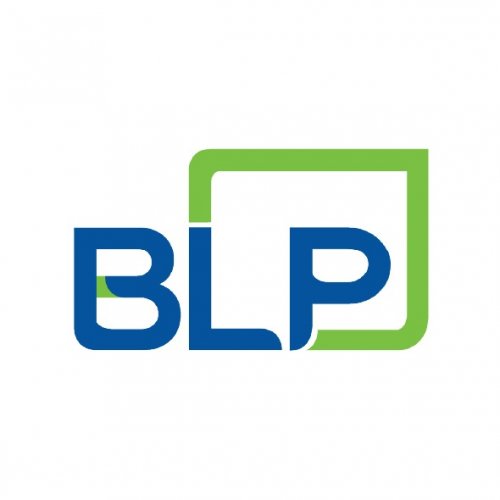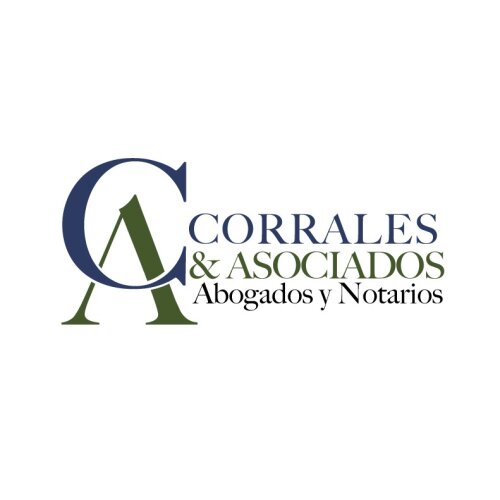Best Corporate Governance Lawyers in Nicaragua
Share your needs with us, get contacted by law firms.
Free. Takes 2 min.
Or refine your search by selecting a city:
List of the best lawyers in Nicaragua
About Corporate Governance Law in Nicaragua
Corporate Governance in Nicaragua refers to the framework of rules, practices, and processes used to direct and manage companies. This system balances the interests of a company's many stakeholders, including shareholders, management, customers, suppliers, financiers, government, and the community. The main goal is to ensure transparency, accountability, and integrity in a company’s operations. In Nicaragua, Corporate Governance is primarily regulated through the Commercial Code (Código de Comercio) and related corporate laws, as well as specific regulations set forth by supervisory authorities for publicly listed and financial institutions.
Why You May Need a Lawyer
Legal assistance in Corporate Governance is crucial in various situations. Entrepreneurs and business owners may need legal advice when forming new companies, drafting shareholder agreements, or structuring a board of directors. Lawyers are also essential when navigating compliance with regulations, resolving disputes between shareholders, or handling mergers and acquisitions. For foreign investors or companies entering the Nicaraguan market, a local legal expert can help ensure compliance with local laws. Additionally, if your company is facing an audit or regulatory investigation, having a knowledgeable lawyer on your side can protect your interests and guide you safely through the process.
Local Laws Overview
The main legal source for Corporate Governance in Nicaragua is the Commercial Code, which defines the processes for company formation, management structure, roles of shareholders, and directors’ responsibilities. Nicaraguan law recognizes various company types, such as Sociedad Anónima (S.A.), Sociedad de Responsabilidad Limitada (S.R.L.), and others, each with its own governance requirements. Reporting and disclosure obligations are particularly important, especially for companies regulated by the Superintendencia de Bancos y Otras Instituciones Financieras (SIBOIF) and the Bolsa de Valores de Nicaragua. Key elements include annual financial reporting, proper minutes for shareholder meetings, director liability, and anti-money laundering provisions. For cross-border or foreign-invested entities, additional compliance with investment and foreign exchange regulations may apply.
Frequently Asked Questions
What is Corporate Governance?
Corporate Governance refers to the systems, rules, and practices by which a company is controlled and directed, promoting transparency and responsible management.
Which legal structures are most common for companies in Nicaragua?
Sociedad Anónima (S.A.) and Sociedad de Responsabilidad Limitada (S.R.L.) are the two most widely used company structures, each with specific governance and reporting requirements.
Is a Board of Directors required for all companies?
A Board of Directors is mandatory for Sociedad Anónima (S.A.) but not always required for other company types. The board is responsible for strategic management and major company decisions.
What are the primary duties of directors under Nicaraguan law?
Directors must act in the best interests of the company, ensure compliance with laws and bylaws, maintain accurate records, and avoid conflicts of interest.
How often must shareholders meet?
Annual general meetings of shareholders are required by law for most company types. Additional meetings may be called as specified in the company’s bylaws.
Are companies required to submit annual reports?
Yes, most companies must prepare and submit annual financial statements, minutes of meetings, and other reports to the applicable regulatory authorities.
What are the consequences of not complying with Corporate Governance regulations?
Non-compliance can lead to administrative sanctions, fines, legal disputes, or even dissolution of the company in severe cases.
Can foreigners serve as directors or shareholders?
Yes, foreigners can be directors and shareholders in Nicaraguan companies, though certain sectors or activities may have restrictions.
What are the anti-money laundering requirements for companies?
Companies must implement policies to prevent money laundering, such as verifying the identity of clients, monitoring transactions, and reporting suspicious activities to authorities.
How can disputes among shareholders be resolved?
Shareholder disputes are typically addressed through negotiation, mediation, or as dictated by the company’s bylaws. Legal action in local courts is an option when amicable resolution is not possible.
Additional Resources
Helpful organizations and resources for Corporate Governance in Nicaragua include:
- Superintendencia de Bancos y Otras Instituciones Financieras (SIBOIF) - Supervises financial institutions and publicly listed companies
- Ministerio de Fomento, Industria y Comercio (MIFIC) - Provides guidance on company formation and compliance
- Bolsa de Valores de Nicaragua - Offers resources for companies listed on the stock market
- Nicaraguan Bar Association (Colegio de Abogados de Nicaragua) - Can connect you to licensed legal professionals
- Local chambers of commerce - Great sources for business and regulatory guidance
Next Steps
If you need legal assistance with Corporate Governance in Nicaragua, start by identifying the specific issue or question you have. Gather all relevant documents, such as company bylaws, past meeting minutes, and correspondence. Contact a qualified lawyer who specializes in corporate law and has experience with local regulations and business practices. It is important to discuss your needs clearly and inquire about costs or timelines for the services required. For complex matters, you may consider consulting with a firm that offers multidisciplinary support including corporate, labor, and tax expertise. Always make sure that your chosen legal advisor is registered and in good standing with the Nicaraguan Bar Association. Taking these steps will help you ensure your company’s compliance, protect your interests, and achieve your business objectives in Nicaragua.
Lawzana helps you find the best lawyers and law firms in Nicaragua through a curated and pre-screened list of qualified legal professionals. Our platform offers rankings and detailed profiles of attorneys and law firms, allowing you to compare based on practice areas, including Corporate Governance, experience, and client feedback.
Each profile includes a description of the firm's areas of practice, client reviews, team members and partners, year of establishment, spoken languages, office locations, contact information, social media presence, and any published articles or resources. Most firms on our platform speak English and are experienced in both local and international legal matters.
Get a quote from top-rated law firms in Nicaragua — quickly, securely, and without unnecessary hassle.
Disclaimer:
The information provided on this page is for general informational purposes only and does not constitute legal advice. While we strive to ensure the accuracy and relevance of the content, legal information may change over time, and interpretations of the law can vary. You should always consult with a qualified legal professional for advice specific to your situation.
We disclaim all liability for actions taken or not taken based on the content of this page. If you believe any information is incorrect or outdated, please contact us, and we will review and update it where appropriate.
Browse corporate governance law firms by city in Nicaragua
Refine your search by selecting a city.










